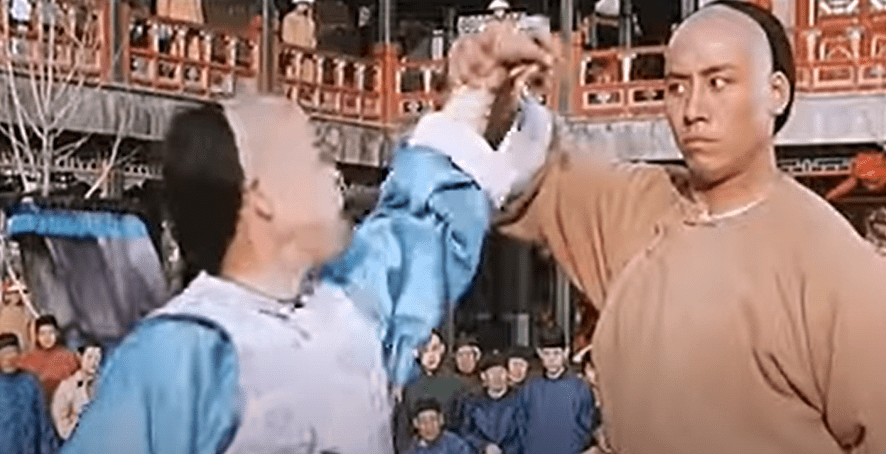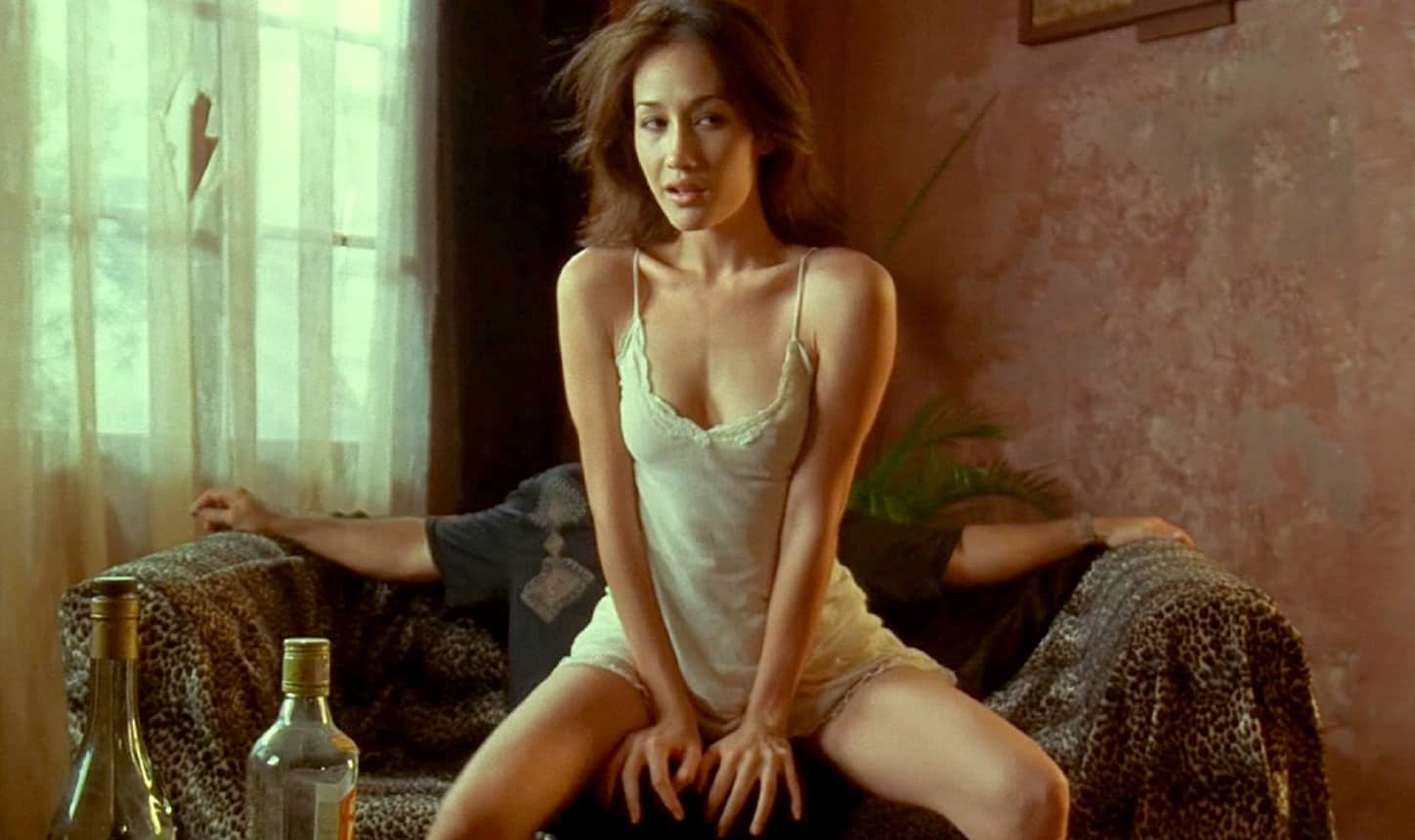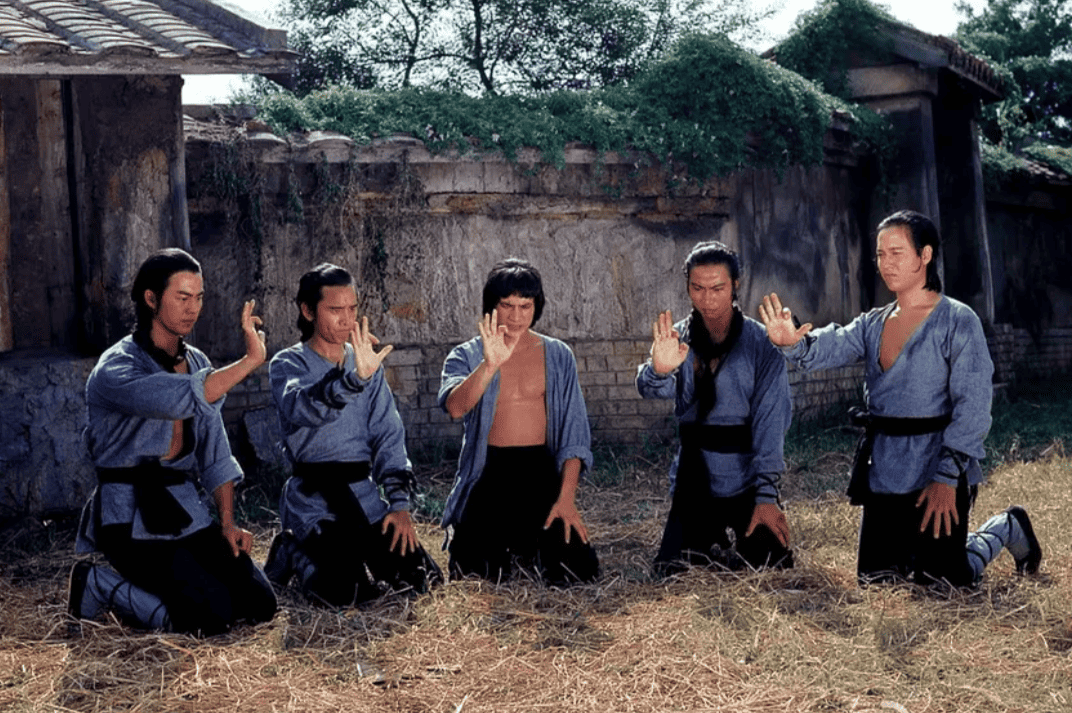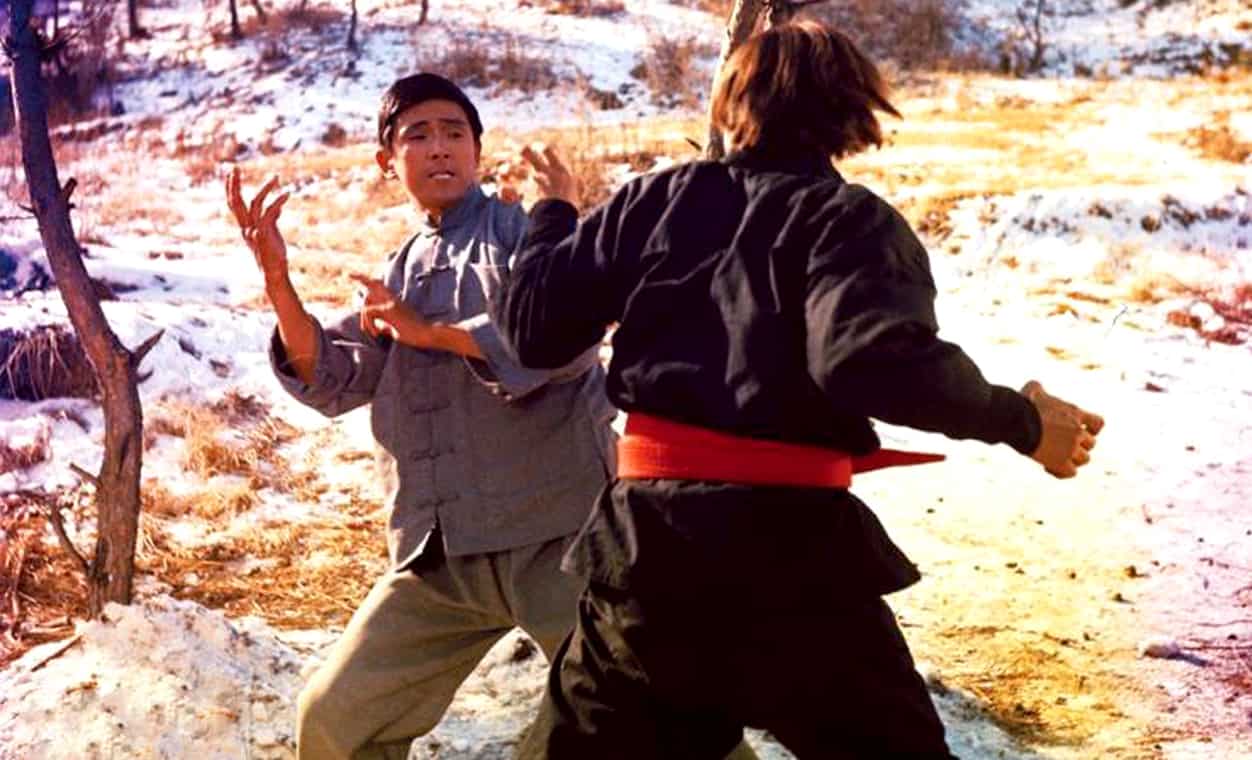It's not often that a Sammo Hung movie gets overlooked, but in 1993 and with the New Wave of action cinema at it's apex, “Blade of Fury” was one that in retrospect probably doesn't get talked about as much as you would think. The Producer Lo Wei has less consistency and, let's be honest, even his Bruce Lee pictures are not exactly the best directed. So, watching this is an experience as who will be the bigger influence on the product and stamp their identity upon it. Whilst it is certainly a flawed piece, it has enough moments within that make it worthy of rediscovery.
Buy This Title
on Amazon
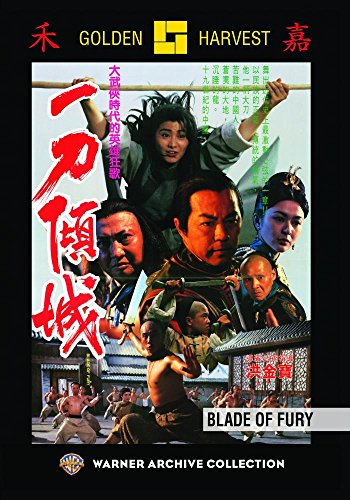
Wang Yu (Yeung Fan) retreats to the life of a blacksmith after watching the Blag Flag militia massacred fighting the Japanese. He comes to the rescue of Tan Szu-tung (Ti Lung) and Nine Catties (Cynthia Khan) when they are caught up in a battle between bandits and imperial soldiers led by Yuan Shi-Kai (Chiu Cheung-Gwan). Opening a martial arts school, Wang Yu is bequeathed the gift of a sword by Yuan Shi-Kai and inadvertently becomes involved in a martial arts tournament when Po-Ting's son goes too far and confronts Po Ting (Yu Yan-kai) in a duel where neither will admit to the true outcome. Po Ting's student (Collin Chou) decides to follow Wang Yu as conflicts with the Japanese emerge again. Betrayal and sacrifice occur as friends become foes leading to the inevitable final confrontation.
The opening sequence of the Black Flag militia going through their practice to a looming sunset is a striking opening visually, especially with the woodwind theme accompanying it. This is one of several scenes that demonstrate that, when on form, Sammo Hung is more than just an action film maker. The other stand out scene is the execution. The use of slow motion here is perfectly done and combined with the score, it is a very powerful scequence. It allows for both Cynthia Khan to demonstrate some emotional range and in its finale, a true sense of Wuxia honour. The action when it comes can be guilty of the undercranking of the camera that some find off-putting. The visual enhancement is standard for Wuxia. We expect almost superhuman feats of agility but the sped-up action for some may be off-putting on occasion. Personally, I loved the duel that concludes with the line “The winner pretended he wasn't, the loser wouldn't admit that he was” as it adds character development through action. The finale goes all out with heroic sacrifice and allows all the key players moments to shine prior to the “Fist of Fury” style ending. It's this scene that feels most recognizably a Sammo Hung action sequence as is more grounded than most of the others, with less of the visual enhancement.
Yeung Fan is definitely a familiar face. A supporting player in no end of martial arts productions, it's a rare lead role for him. Unfortunately, whilst he has the physical attributes, his stoicism as Wang Yu comes across as fairly wooden. It's an archetype role that never really lets him escape the shackles and really engage. Fortunately, the supporting cast have much more to offer. Ti Lung is excellent. His Tan Szu-tung has an air of battered nobility. His honour ultimately proving his downfall. He also gets to form a double act with Cynthia Khan's more abrasive Nine Catties. This is probably her best performance. Usually constrained to “Girls with Guns” cop action movies, she gets to actually act rather than react here. Her natural beauty is combined with the added grace that Sammo Hung gets out of performers with his choreography. Collin Chou is so often the villain these days that it is rather refreshing seeing his youthful self on the other side for once. It's a stereotypical role but one he handles well. Rosamund Kwan is sadly just window dressing here, her noblewoman character nothing more than a plot device. On the other side though, we get two very interesting villains. Lau Shun is superb as the manipulative politician Ngo Pai, his facial contortions alone are worth the viewing and Chiu Cheung-Gwan equally good as the ambitious general that is quite willing to sacrifice anyone and anything to get ahead.
The story is where the film struggles. With Wuxia features, we kind of know where the story will head but this seems to want to stop and take in the scenery. This makes the pace go up and down which in turn can impact on the engagement. Some of the aforementioned scenes are exquisitely done and some of the best in Sammo Hung's illustrious career. Yet others such as his own cameo don't quite “fit”. Rosamund Kwan's character for example feels shoehorned into the piece without really needing to be there. As ever the finale is what brings everyone back around but with a bit of tightening this could have been a real classic. It's that frequent criticism when productions were put together at pace and you do get the impression this was more a “for hire” work than something he was fully invested in. As a consequence, it lacks a bit of its own identity. On more positive notes, Lowell Lo delivers another beautiful score which adds to the quality of Raymond Lam's cinematography.
Is this in the top tier of Sammo Hung's work? Probably not, but then his top tier is significantly higher than most So, to be even in the next tier of his canon is not exactly a negative even when not fully engaged. Given producer Lo Wei's history, this is far better than you might expect from him! It to an extent lacks a true sense of its own identity. Though whilst some of the action sequences might not appeal to some tastes, and the overly familiar narrative is a bit flawed, overall, it is still a very enjoyable piece. Visually it looks superb and the score is beautiful. Take away the rather wooden lead and the performances are generally good, and the finale is as to be expected from the standard of the director. Polished, entertaining just perhaps missing a little bit of a soul.


